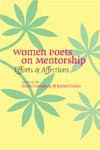I have been following Ron Silliman's writings about the Williams Carlos Williams award. Silliman says he wanted to pick a book that would "was a book that would change poetry itself, deeply & permanently." This led me to some thinking. What does this mean exactly and which books do I hold dear accomplish this?
First, one could argue that every poem (with a captured reader) changes poetry deeply. They may only change an audience of one (which in the poetry business is not uncommon) but a change occurs none-the-less.
This is what led me to differenciate between my 'personal' list and my 'global' list. Some poems I credit with 'altering my life' are (titles may be off, as I am writing from memory) Akhmatova's Monday Night, Michael Palmer's Dearest Reader, Mary Oliver's Wild Geese, Rachel Zucker and others poems on motherhood, Robert Hass' poems from "Human Wishes," parts of Patterson, Before the War, and Maximus poems, Howl AND Kaddish, From this Condensary by Lorine Niedecker, The Greenhouse Effect by Lee Bartlett (and his biography of Bill Everson), any number of Jorie Graham's poems, everything by Muriel Rukeyser, and the lines (close to them)
I don't know how the hip hop kids do it
but I love it.
By Fanny Howe.
This, of course, is a beginning list. However, have any of my little poets 'changed' the course of poetry history? If not, who has? Ironically, Sillman, as he knows!, is a good place to start with changing poetic history. He pretty much 'invented' the poetry blog and has been sucessful at being the best source, although I see Reginald Shepard inching in. Sillman also, of course, did "In the American Tree." Need I say more.
However, he can't be entirely credited in this 'changing.' There are, of course, all the poets in the anthology and my father who wrote the seminal 'What is Language Poetry?'
Onward, I'm not sure if Mary Oliver's poetry, as much as I love it, can "change poetry itself, deeply & permanently." But, she has done something miraculous in the culture. In 2008, Oliver has convinced over 500 people at any given time that they will go to a poetry reading and pay $25 to do so. Now, that's a miracle. Is she getting advice from Mick Jagger? Even Michael Palmer who, in my small opinion, is the best looking, smartest, nearly most talented poet alive, only got a hundred or so people at the New School.
I know many people might argue, but the only possible answer to the question did Ginsberg, Olson, and Duncan change poetry history is Well, Yes. I know this may not seem feminism enough, but the fact that they were men (and in Olson's case, an asshole) does not make their talent less. Rukeyser, Dickinson, and Stein all had their influence as well. One might even ask, would there be LP if there were no Stein? Would there be Graham or Oliver if there were Dickinson?
This brings us to the 'heavy social' hitters. The guys with Ecco Press and big jobs. Jorie Graham. I think she's a fucking genius -- also very good looking. But, where does she fit? What about Robert Pinsky? Stanley Kunitz? Billy Collins? They all write (or did in Kunitz's case) solid, good books. But, will they "change poetry itself, deeply & permanently." I'm not sure, and perhaps it's too soon to tell.
I think some one like Mei Mei Berssenbrugge might have a better chance.
Perhaps poetry is like The Bible. You get to have it good in this life or the next.
You get to work at Iowa or Harvard OR toil in obscurity.
What poets have changed your life -- globally or personally?

